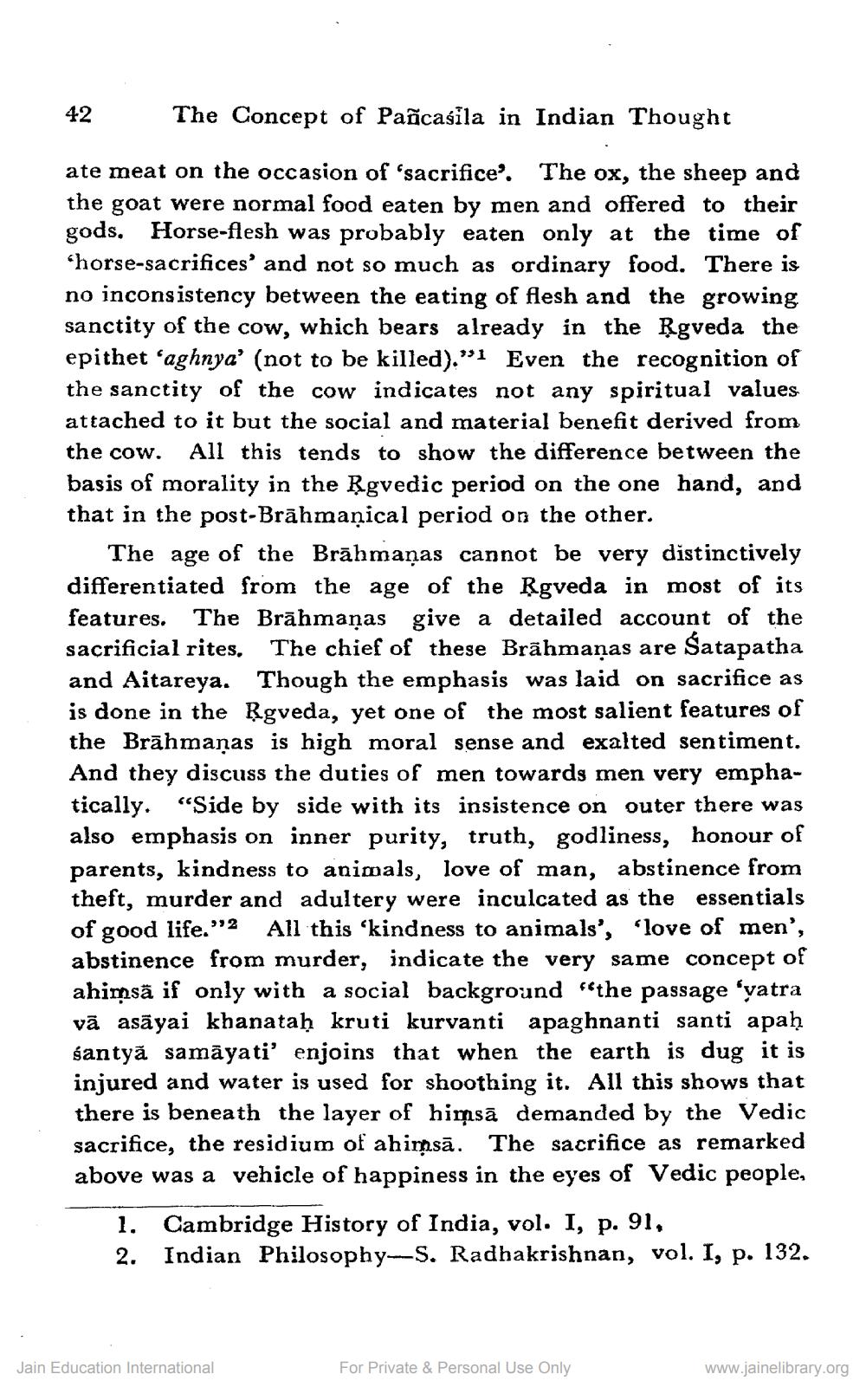________________
42
The Concept of Pancasila in Indian Thought
ate meat on the occasion of 'sacrifice'. The ox, the sheep and the goat were normal food eaten by men and offered to their gods. Horse-flesh was probably eaten only at the time of "horse-sacrifices' and not so much as ordinary food. There is no inconsistency between the eating of flesh and the growing sanctity of the cow, which bears already in the Rgveda the epithet 'aghnya' (not to be killed)."i Even the recognition of the sanctity of the cow indicates not any spiritual values attached to it but the social and material benefit derived from the cow. All this tends to show the difference between the basis of morality in the Rgvedic period on the one hand, and that in the post-Brāhmaṇical period on the other.
The age of the Brāhmaṇas cannot be very distinctively differentiated from the age of the Rgveda in most of its features. The Brāhmaṇas give a detailed account of the sacrificial rites. The chief of these Brāhmaṇas are Satapatha and Aitareya. Though the emphasis was laid on sacrifice as is done in the Ķgveda, yet one of the most salient features of the Brāhmaṇas is high moral sense and exalted sentiment. And they discuss the duties of men towards men very emphatically. “Side by side with its insistence on outer there was also emphasis on inner purity, truth, godliness, honour of parents, kindness to animals, love of man, abstinence from theft, murder and adultery were inculcated as the essentials of good life."2 All this ‘kindness to animals', 'love of men', abstinence from murder, indicate the very same concept of ahimsä if only with a social background "the passage ‘yatra vā asāyai khanataḥ kruti kurvanti apaghnanti santi apaḥ santyă samāyati' enjoins that when the earth is dug it is injured and water is used for shoothing it. All this shows that there is beneath the layer of himsā demanded by the Vedic sacrifice, the residium of ahirsā. The sacrifice as remarked above was a vehicle of happiness in the eyes of Vedic people,
1. Cambridge History of India, vol. I, p. 91, 2. Indian Philosophy--S. Radhakrishnan, vol. I, p. 132.
Jain Education International
For Private & Personal Use Only
www.jainelibrary.org




